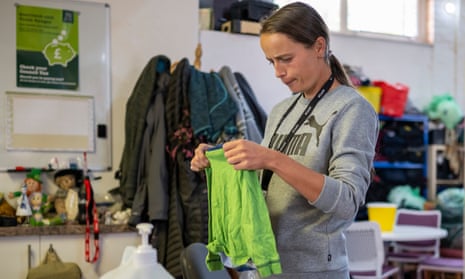Re your editorial (The Guardian view on the voluntary sector and the state: this crucial relationship needs resetting, 14 January), in the early 1990s I published a paper, States Without Citizens: The Problem of the Franchise State, bemoaning the state’s increasing reliance on the provision of essential services by voluntary, non-rights-based charities, which undermines the prospect of accountable governance of the state. The concept of civil society should not be reduced to charities providing public services that the state ought to provide to its entitled citizens. I hope any upcoming Labour manifesto does not repeat this mistake. A hallmark of democracy is that the institutions of civil society be independent of the state – neither funded by the state nor substituting for it.
Geof Wood
Emeritus professor of international development, University of Bath
I shouted “Hear, hear” when I read your editorial(14 January). I worked in the voluntary health, housing and support sectors from 1971 to 2006, and as a volunteer in the local community sector for much longer, during which time I saw it professionalised to the point where I used to describe it as the “alternative establishment”, which believed it could run services better than local government.
What grieved me most was the demise of local voluntary support groups providing doorstep services, with neighbourhood-based care workers, because local authorities and large charities took every opportunity to undermine them. Today, “care” workers run around at breakneck speed in cars, delivering minimal support for minimal pay.
Quality and efficiency in service will only return when it becomes non-competitive and locally based again.
Robert Howard
Beeston, Nottinghamshire
